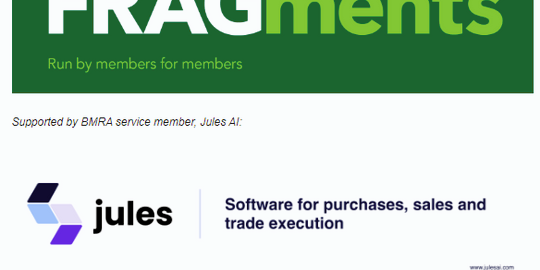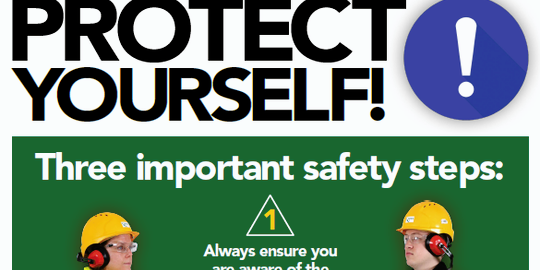As a key Partner in its net zero ambitions
Maintaining global exports, cheaper energy, kerbside collections, among the asks directed at Secretaries of State
The British Metals Recycling Association (BMRA), the voice of the UK metals recycling industry, is calling on the Government to improve business conditions for UK metal recyclers in order that the industry can grow and thrive and, with its proven sustainability credentials, support the Government’s ambition of being net zero by 2050.
An Agenda for Change, targeting key Government Ministers, highlights the UK metals recycling industry’s key asks it says will make it easier for them to do business. These asks will support the industry to continue to enjoy free and fair trade, improve site safety, and contribute to the UK’s net zero ambition.
The document, which was presented to MPs at a parliamentary dinner, highlights issues facing metal recyclers and calls on Government to consider the following:
- Unfettered free and fair trade by not imposing export restrictions on metal; the UK metals recycling industry can more than support the UK steel industry with scrap metal
- Additional treatment facilities for hazardous and POPs waste whilst encouraging eco-design to design out harmful substances
- For metals recycling to benefit from the British Industry Supercharger (lower energy rates) and facilitate technological innovation between metal recyclers and steelmakers
- Kerbside collection for batteries and small WEEE with the aim to reduce fires caused by lithium-ion batteries entering recycling and waste sites
- Setting minimum recycled content requirements for new public sector infrastructure projects
- A variable-rate deposit return scheme to encourage the use of 100% recyclable metal over plastic
“Given recycling’s prominence in achieving net zero goals, and metals’ 100% recyclability, the Government needs a strong metals recycling industry. It will benefit the country to move forward and reach its 2050 targets,” says James Kelly, BMRA’s CEO.
“I am looking forward to laying out BMRA’s lobbying priorities for the UK metals recycling industry, focusing on key asks that enable our industry to operate in the most cost efficient and sustainable way.
“Metals recycling’s evidential impact on sustainability and climate is clear, it lowers CO₂ and helps preserve natural habitats by reducing the need for primary extraction and raw materials. BMRA’s calls on the Government are simple and clear, strongly consider the UK metals recycling industry’s impact to your own ambitions.”
Key facts:
- From yearly arisings of 11.5 million tonnes of scrap metal, the UK exports 70-80%. Even supplying 100% of UK steelmakers scrap metal requirement (expected to reach 60% of total arisings) there would still be a 4 million tonne surplus of scrap metal.
- The cost to metal recyclers of the disposal of hazardous materials is approx. £300-400 per tonne and yet the level of hazardous materials is growing.
- Over 1,200 fires in the waste industry are caused by lithium-ion batteries as there are no simple routes for disposal.
- In addition to switching to Electric Arc Furnaces, which can be supplied with 100% scrap steel, an ambitious Government would lower electricity costs across the entire metals value chain expediting the switch to electric from diesel and lowering CO₂. For example, switching from a diesel baler to an electric one can reduce CO₂ by 49%.
- Government can reap the benefits of the green economy and reach net zero targets by embedding green principles within public sector procurement. Using 1 tonne of recycled steel in public procurement would avoid 1.5 tonnes of CO₂.
- A flat-rate deposit return scheme incentivises plastic consumption over steel and aluminium cans. It could lead to 826 million extra plastic bottles being produced.
To read the An Agenda for Change, visit: www.recyclemetals.org/agenda-for-change
Media Contact:
Kate Magill – BMRA
e. [email protected]
Notes to editors:
The British Metals Recycling Association (BMRA) represents the £7 billion metals recycling sector, which comprises an estimated 2,000 businesses and employs over 15,000 people. The industry trades and processes 11.5 million tonnes of ferrous and non-ferrous metals every year, including: steel, aluminium and copper. On average, the UK exports between 70%-80% of all scrap arisings in the UK.
Scrap metals are secondary raw materials whose use reduces the demand for precious natural resources needed to make new metal compounds – such as iron ore in steelmaking; nickel in stainless steel; or alumina and bauxite in aluminium smelting.
For example, every tonne of recycled steel saves:
- 1.5 tonnes of iron ore
- 1.5 tonnes of carbon dioxide
- 0.5 tonnes of coal
- 70% of the energy
- 40% of the water
The figures for aluminium and copper are even more impressive. The recycling of copper requires up to 85% less energy than primary production. Around the world, this saves 40 million tonnes of CO₂. Recycling aluminium uses 95% less energy than producing aluminium from raw materials and saves 97% of greenhouse gas emissions produced in the primary production process.


